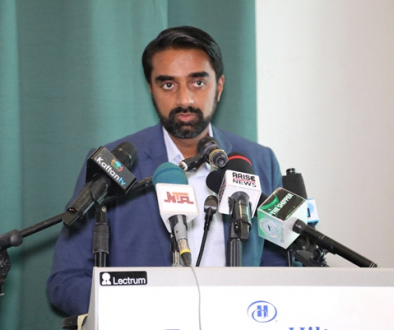Clapping with One Hand – A Review of Past Strategies at Fighting Corruption

That corruption is a major challenge to the socio-economic development and progress of Nigeria is well established and documented. According to the former UNODC Executive Director, Antonio Maria Costa, close to $400 billion was stolen between 1960 and 1999 in Nigeria. He noted it is “an amount of money that if you were to put dollar bills end-to-end, you could make 75 round trips to the moon!” According to the Inter-Governmental Action Group Against Money Laundering in West Africa (GIABA), half of Nigeria’s $40 billion annual oil revenue is stolen or wasted. The cumulative effect of these according to Xavier Sala-i-Martin and Arvind Subramanian is that oil revenue accumulated over the 35-year period between 1960 and 2000 did not add value to the standard of living of Nigerians. This is buttressed by the fact that in 2000 when oil revenue grew to US$325 per capita, per capita GDP remained at the 1965 level and while Nigeria’s per capita GDP (in Purchasing Power Parity terms) was US $1,113 in 1970, it fell to US$1,084 in 2000, a figure which placed the country among the fifteen poorest in the world at the time.
The systemic and endemic nature of corruption in Nigeria have elicited varying responses and strategies from various governments/regimes since the 1960s. Beginning with the formation of the Police “X” Squad by the Yakubu Gowon regime (1967-1975); to the establishment of the Public Complaints Commission and the Code of Conduct Bureau by the Murtala Mohammed administration (1975-1976); to the Buhari/Idiagbon regime’s War Against Indiscipline (WAI); to the IBB regime rechristening WAI to the War Against Indiscipline and Corruption (WAIC), and also establishing the Code of Conduct Tribunal; and Sani Abacha’s Failed Banks Tribunal; to Obasanjo’s creation of the Independent Corrupt Practices and Other Related Offences Commission (ICPC), the Economic and Financial Crimes Commission (EFCC), the Nigeria Extractive Transparency Initiative (NEITI), the Bureau of Public Procurement (BPP), the Nigeria Financial Intelligence Unit (NFIU) among many other creations of the regime, Nigeria has never been short of initiatives and attempts at combatting the scourge of corruption. The question however is, what are the results of these myriads of efforts aimed at slaying the monster of corruption in the country?
One thing that sticks out like a sore thumb in these efforts was the very limited role of the ordinary citizen in fighting corruption. The ordinary citizen was largely a spectator in all the aforementioned efforts. Mobilising the ordinary citizen to take ownership of the efforts at ridding the country of corruption was one area where these initiatives largely neglected. It is therefore not surprising that none of the initiatives was sustainable nor went beyond the regimes that initiated them.
While the Police “X” Squad of the Yakubu Gowon regime employed sting operations as a primary tool for fighting corruption and the Murtala Mohammed focused primarily on reform of the civil service as its major plank for fighting corruption, the Buhari/Idiagbon regime employed tribunals and probes as tools in the fight against corruption. Sani Abacha, on the other hand, focused on the scourge of failed banks many of which collapsed because of corruption and insider abuse. For the IBB regime despite rechristening of the War Against Indiscipline of its predecessor into the War Against Indiscipline and Corruption (WAIC), the regime was noted to have institutionalised corruption and enthroned the ‘settlement’ culture as state policy. The Obasanjo regime attempt was largely to create legal and Institutional frameworks which led to the creation ICPC, EFCC, NEITI, BPP, NFIU, Bureau of Public Service Reforms (BPSR), Special Control Unit against Anti-Money Laundering (SCUML), SERVICOM, Anti-Corruption and Transparency Units (ACTUs) among others.
While these efforts led to one form or the other of recovery of looted funds, the results at best have been mixed with the accusation of selective application of the law dogging nearly all the above-mentioned efforts at fighting the scourge of corruption. In the case of the Buhari/Idiagbon regime, the regime was accused of employing fascist methods in its anti-corruption war because of its perceived high handedness and the outlandish prison terms to politicians that were displaced by the military coup that brought the regime to power.
Anti-corruption efforts and initiatives in Nigeria have resulted in little or no sustained results due to the non-inclusion or buy in of the citizenry. Corruption is best fought fighting with the people rather than being fought for the people. Except the citizens see corruption as directly impacting negatively on their lives, they can’t be sufficiently mobilised to own the fight. If anything is lacking in Nigeria, it is the failure to convey this message to the ordinary citizen which makes it difficult to get the people into the fray despite the humongous amounts of money being reported to have been stolen almost on a daily basis.
Currently, the PMB regime has set up of the Presidential Advisory Committee Against Corruption (PACAC) and directed all MDAs to comply with the Treasury Single Account (TSA). However, the regime’s initiatives suffer from the same limitation and appear to be repeating the mistakes of the past – failure to locate a place for the citizens to own the anti-corruption fight! For anti-corruption efforts and initiatives to produce sustained results, it must be anchored on the people for whose interests it is being implemented. To do otherwise is a recipe for motion without movement, as it is currently the case in Nigeria. It can only result in clapping with one hand!
Bringing the people into the fight against corruption requires consciously handing over the task of identifying corruption in its various manifestations in their daily lives to them. It is important to provide the people with avenues to report corrupt cases and put in place effective mechanisms to respond to identified cases of corruption. There is also a need for the creation of incentives to get voluntary compliance by the people either as victims or perpetrators and tying access to public resources to compliance, especially by public institutions and those who deal with these institutions either as providers of service or goods. When the people are assured that they can do right and do good, voluntary compliance will be encouraged. Such a process when sustained will produce visible results and mobilise people to take ownership of the anti-corruption war.


